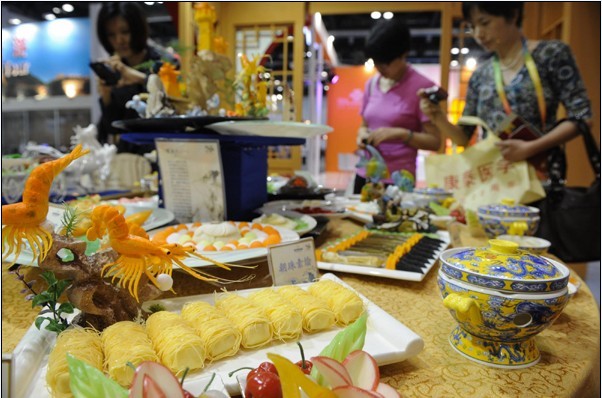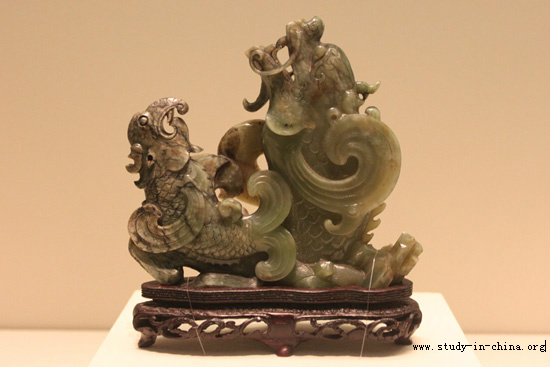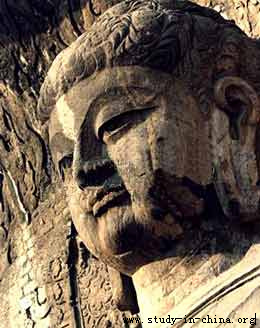| Home > China Feature |
Xylographic Techniques
The xylographic painting boasts a long history in China. As early as in the Tang Dynasty, monochromatic xylographs were already featured by a high level of technique. By the late Ming Dynasty, chromatic surprinting such as chromatographic and arching printing had appeared, indicating greater progress in the technique. Since it has constantly been a handcrafted technique, xylography is now inherited and developed simply as a cultural heritage. As a very specialized and creative process, production of xylographic paintings entails producers' ability to grasp the original works, as well as their grounding in painting and engraving. Chromatic surprinting, in particular, attaches much importance to exquisite workmanship of producers, quality of materials, pigments, moisture, even temperature and humidity. If anything goes wrong, all previous efforts might go to waste. In light of this, the success ratio of producing xylographic paintings is quite low. Take Shizhuzhai Collection of Calligraphy and Painting, by Hu Zhengyan of the Ming Dynasty for example. It took ten years for tens of professionals to make a set of wooden boards. A large amount of money was also devoted to this huge project. Besides, there is a limit on how long a set of wooden boards can be used. Usually, a whole set can be effectively used a little more than one hundred times.
The xylographic painting is a replication technique peculiar to China. Integrating painting, engraving and printing, it presents brushwork and ink rhymes according to the principle of water-ink permeation. It can be used not only in creating works of art with their own characteristics, but also in vividly replicating Chinese calligraphy and painting of all kinds.
Art
 more
moreChina Beijing International Diet ...
Recently, The hit CCTV documentary, A Bite of China, shown at 10:40 ...

Exhibition of Ancient Chinese Jad...
At least 8,000 years ago, Chinese ancestors discovered a beautiful...

Longmen Grottoes
The Longmen Grottoes, located near Luoyang, Henan Province, are a tr...

Custom
 more
moreWeb Dictionary
Martial Arts
Tai Chi Master Class Held in Moscow
MOSCOW, June 15, 2016 (Xinhua) -- Students learn from Shaolin ...
Celebriting 70 years' efforts in restoring Mogao...
Work is being carried out at the restoration site of cave No 98 a...
Hong Kong Children's Symphony performs in Seattle
Under the theme of Tribute to the Golden Age, a concert featuring a ...





 print
print  email
email  Favorite
Favorite  Transtlate
Transtlate 








